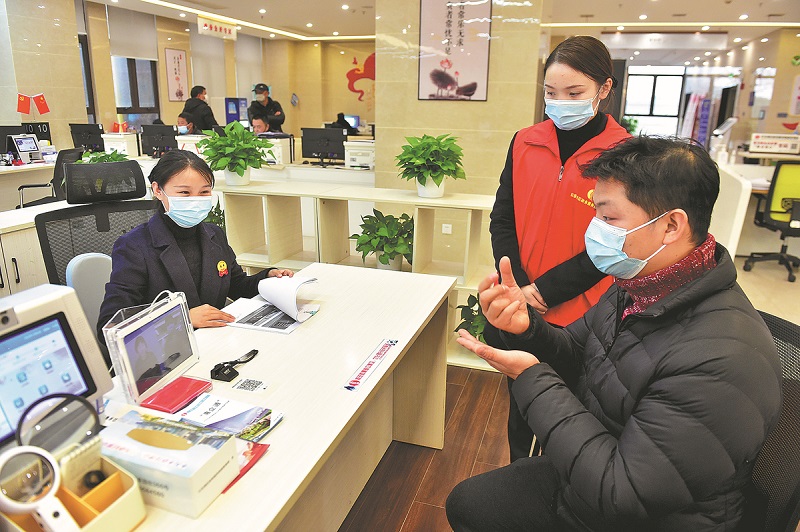Life made easier for those facing difficulties

A resident with impaired hearing communicates with a government employee in Nanchang, Jiangxi province. PENG ZHAOZHI/XINHUA
When the draft law on building a barrier-free living environment was disclosed online in November, she received a WeChat message from a former student, saying that Xie had been invited by the Jianghai station to provide advice on legislation after it learned of her experience.
"I was so surprised. Legislators came to listen to my ideas and personal experience, which encouraged me and made me feel valued," Xie said.
After carefully reading the draft, she submitted her ideas to the Jianghai station online, saying that some place definitions, such as "residential building", "residential area", "public buildings", "urban roads" and "rural roads", were not clear enough, which would be confusing for law enforcement departments.
Xie also suggested that the top legislature specify who should pay for renovation work to be carried out at such locations.
Her opinions and suggestions were included in the final version of the law. Expressing her excitement, Xie said she would continue to provide advice on legislation concerning the disabled.
In addition to people in Jianghai, a number of residents offered advice on the law through stations in Tianjin, Shanghai and Shandong province, or contacted the commission via video link.
Shi, from the Legislative Affairs Commission, said, "This broad participation — offline and online — shows that whole-process people's democracy has been implemented in legislation."
He added that the suggestions from various walks of life will not only contribute to law implementation, but also to improving the quality of life for all residents.
- Top legislature schedules session for Wednesday
- China's top legislator meets with British PM
- China's top legislator holds talks with president of Senegalese National Assembly
- China's top legislator meets with Finnish PM
- Top legislator calls for advancing people's congress work in line with Party, State priorities



